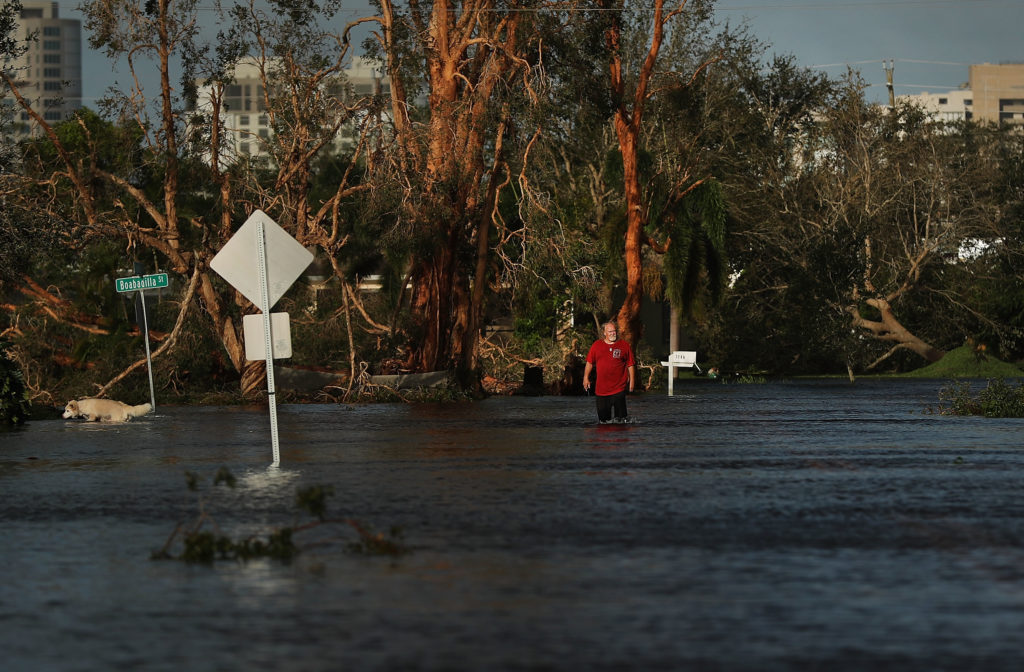First Things First
- Return home only after authorities say it is safe to do so. Follow any specific re-entry procedures that may have been put in place. Stay tuned to WINK News, The Weather Authority, and winknews.com for recovery information.
- Try to help injured or trapped persons as best you can. But do not move seriously injured people unless they are in immediate danger of further injury. Call for help. Give first aid where appropriate.
- Avoid loose or dangling power lines. Report them immediately to the power company, police or fire department.
- Drive only if absolutely necessary and avoid flooded roads and washed-out bridges. Allow emergency crews to remove fallen power lines and other hazardous debris.
- Enter your home with caution. Open doors and windows to ventilate or dry your home. Beware of snakes, insects and animals driven to higher ground by flood water.
- Check for gas leaks. If you smell gas or hear a blowing or hissing noise, open a window and quickly leave the building. Turn off the gas at the outside main valve and if you can, call the gas company. If you turn off the gas for any reason, it must be turned back on only by a professional.
- Look for electrical system damage. If you see sparks or broken or frayed wires, or if you smell hot insulation, turn off the electricity at the main fuse box or circuit breaker.
- Check for sewage and water line damage. If you suspect sewage lines are damaged, avoid using the toilets and call a plumber. If water pipes are damaged, contact the water company and avoid tap water.
- Keep your refrigerator closed as much as possible to protect food from spoiling. Discard any spoiled foods.
- Take pictures of any damage to your house and its contents for insurance claims. Save receipts—including those for temporary lodging and food—for reimbursement. Keep records of not only all receipts, but also of cancelled checks, bills and other documents received for repair work or temporary lodging.
- *Currently: Lee, Collier and Charlotte Counties are all under a boil water notice until further notice.
- **Lee County, Collier County and Charlotte County are all currently under curfew until further notice.
WHAT THE STORM LEAVES BEHIND
Storm Debris
Following a hurricane, it will become necessary to separate your curb-side trash. Debris from the clean-up and recovery will be accepted by priority.
- As soon as roads are cleared, raw garbage such as animal, fruit or vegetable waste will be collected.
- The second priority will be normal household garbage including food waste.
- The third priority is yard waste. Place trees, branches and the like in piles that can be easily managed by collection personnel.
- And finally, the last priority will be construction debris such as lumber, roofing, concrete and similar materials.
- Your county may accept food waste at the local waste management facility. Contact the facility for drop-off hours.
- Do not block your road with garbage.
- Storm Debris Removal Information:
- Charlotte: (941) 575-3600
- Collier: (239) 252-2380
- DeSoto: (863) 993-4831
- Glades: (863) 946-6020
- Hendry: (863) 675-5222
- Unincorporated Lee: (239) 533-8000
CLEANING UP AROUND AND ABOUT THE HOUSE
Household Priorities
- Pump or bail water out of the house as soon as possible.
- Open the windows to let the house air out and give the walls and floors a chance to dry.
- Shovel mud out before it can dry, then scrub floors and walls with a brush and mild soap and water.
- Make sure all appliances are unplugged as a general safety precaution.
Stoves and Ovens
- Clean the outside with a grease cutter, then with detergent and water.
- Clean the inside with conventional oven cleaner.
Refrigerators and Freezers
- To remove odors, wash the inside and the plastic door gasket with detergent and water.
- Rinse with a cloth and clear water. Wipe dry.
Washers and Dryers
- Pour a disinfectant into the empty washer. Run a 15-minute cycle using the hot water setting.
- Unplug the dryer and wipe the drum and dryer door with a cloth dipped in disinfectant solution.
- Rinse with a cloth dipped in clear water.
- Leave the dryer door open until all parts are dry, preferably overnight.
- Leave the dishwasher door open until all parts are dry.
Books and Papers
- Place books on end with leaves separated. When they are partially dry, pile and press books. Alternate drying and pressing until thoroughly dry.
- If books and papers are very damp, sprinkle some corn starch between the pages to absorb moisture. Leave on for several hours, then brush off.
- When papers and books are almost dry, try using an electric iron set on low heat to flatten the pages.
- Separate the pages to prevent odors.
- When books are completely dry, close them and clamp them closed to help them retain their shape.
- Photocopy important papers because they may quickly disintegrate, even if they have dried out.
Swimming Pools
- Remove as much debris by hand as possible and lower the water level to normal.
- Add a chlorinator, as in the form of the 10 percent hypochlorite granules commonly known as shock.
- Super chlorinate again and clean the filter frequently until the pool is back to normal.
- Have the gas company reconnect the heater line. If your pool needs structural repairs, choose a contractor carefully.
Looting
With walls and more blown away–and since many homes belong to snowbirds summering up north–residences become easy targets. But, it’s important to note that incidences of crime are statistically lower after a disaster.
Assessing Damage
- Wear protective clothing and be cautious when cleaning up to avoid further injury
- Drive only when necessary
- Ask people (friends, neighbors) for help before taking on heavy rebuilding projects, or hire a professional
- Avoid making permanent repairs until your Claim professional has reviewed the damage
- Separate and inventory damaged property
- Create a list of damaged products. Include the following:
- Description of item
- Name of the manufacturer
- Brand name
- Age of item
- Place and date of purchase (if known)
- Include photos, videos or records of personal property you have available
- Create a list of damaged products. Include the following:





